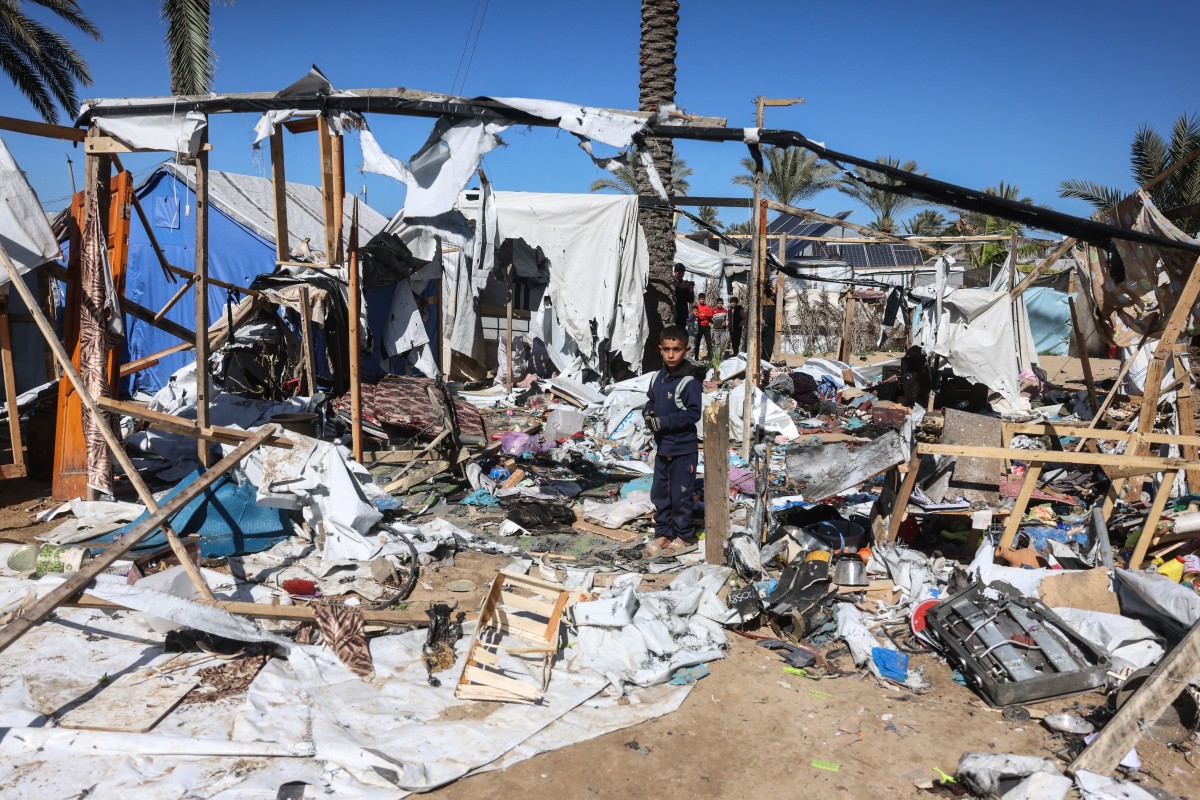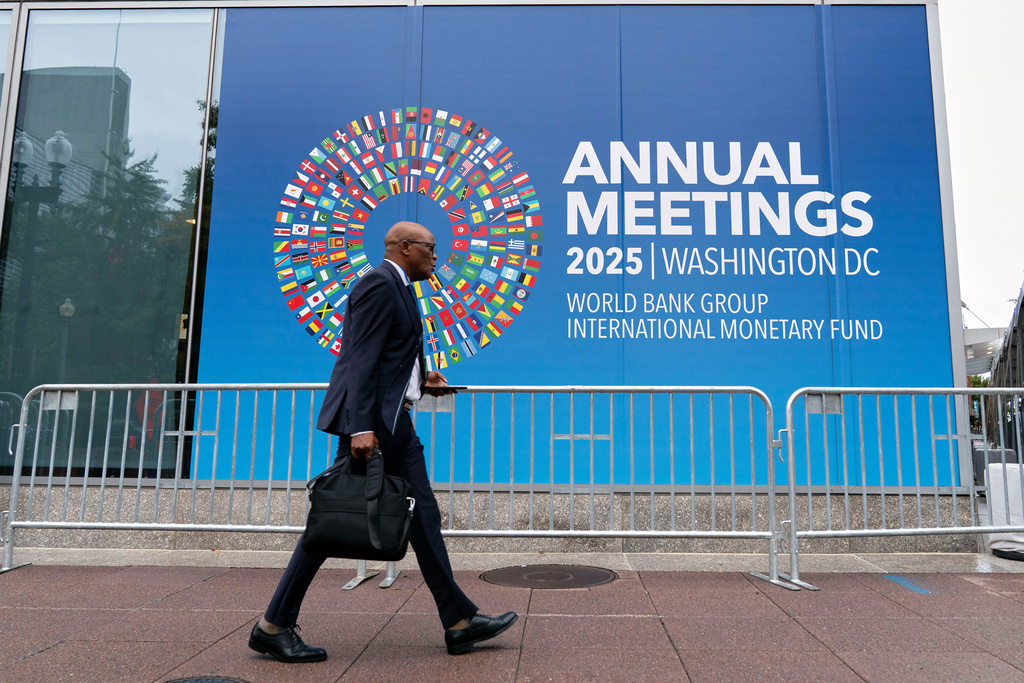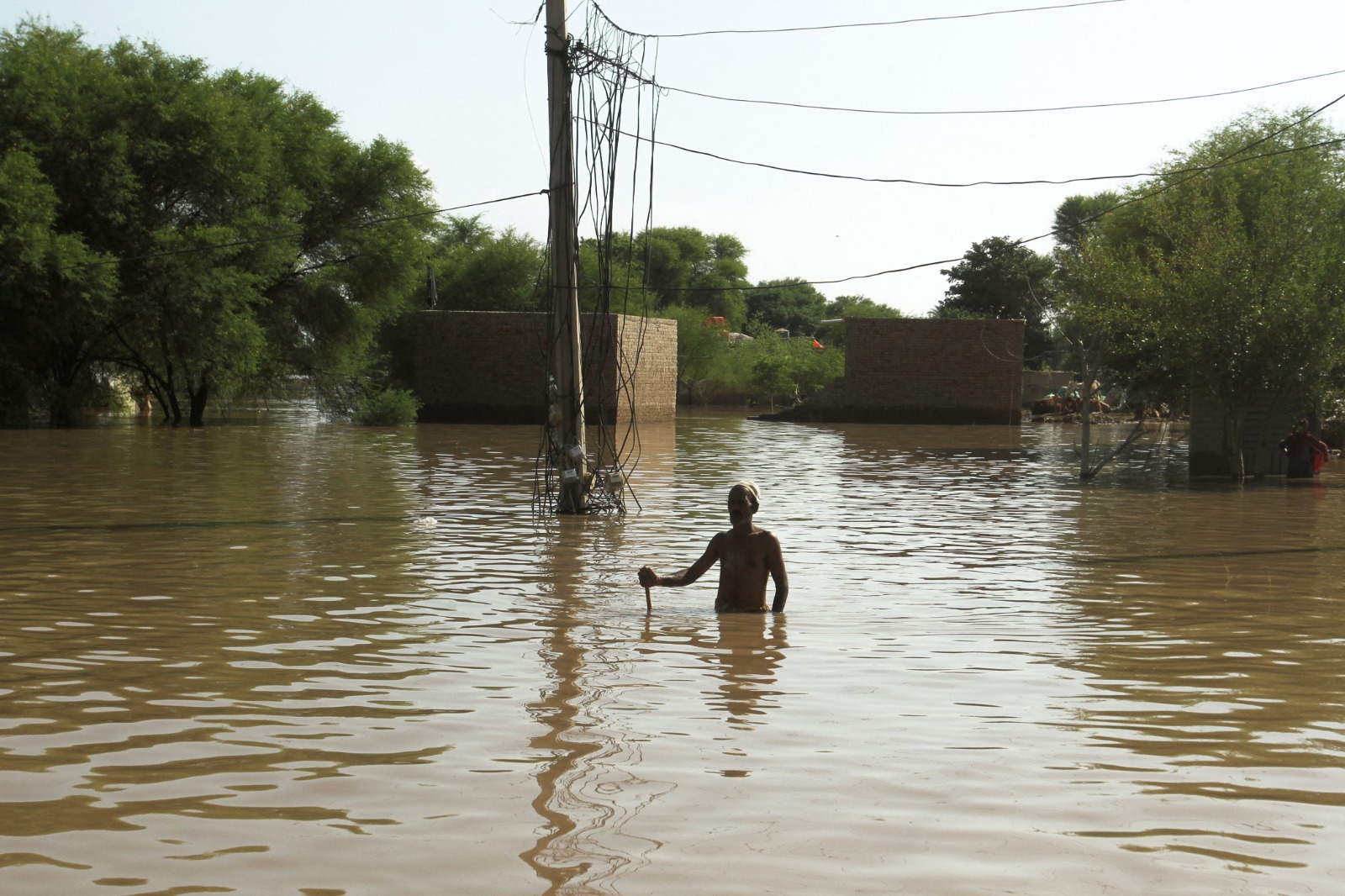WASHINGTON: The International Monetary Fund on Tuesday — after reaching a staff-level agreement with Pakistan — said that authorities were committed to strengthening public finances, providing support to flood victims, ensuring the inflation target is met, restoring the energy sector’s viability, and advancing structural reforms.
An IMF team left Pakistan last week without signing the staff-level agreements on reviews of its two main support programs, which are worth a combined $8.4 billion.
Earlier on Tuesday, Pakistan Finance Minister Muhammad Aurangzeb said that the country was set to sign a preliminary deal on a review of its loan program with the IMF, a key step to securing a payout from the lender.
"The mission was on the ground for a couple of weeks, we had very constructive dialogue with them around the quantitative benchmarks, the structural benchmarks, and we've been having some follow-up discussions," Muhammad Aurangzeb told Reuters during an interview on the sidelines of the IMF and World Bank annual meetings.
According to a statement issued by the IMF on Tuesday, the approval of the loan program would allow Pakistan to access $1.2 billion — $1 billion under the Extended Fund Facility and $200 million under the Resilience and Sustainability Facility — after approval from the fund's board, bringing total disbursements under the two arrangements to about $3.3 billion.
While quoting the Mission Chief Iva Petrova, the statement said, “Pakistan’s economic program is entrenching macroeconomic stability and rebuilding market confidence.”
“The recovery remains on track, with the FY25 (fiscal year 2025) current account recording a surplus — the first in 14 years, the fiscal primary balance surpassing the program target, inflation remaining contained, external buffers strengthening, and financial conditions improving as sovereign spreads have narrowed significantly,” Petrova said.
However, she added that the recent floods have “weighed on the outlook, particularly of the agriculture sector, bringing down the projected FY26 GDP to about 3.25%-3.5%,” underscoring Pakistan’s high vulnerability to natural disasters and substantial climate-related risks.
“The authorities reaffirmed their commitment to the EFF- and RSF-supported programs, and to maintaining sound and prudent macroeconomic policies while advancing ongoing structural reforms. The authorities’ policy priorities include,” Petrova said.
The statement said that Pakistan remained committed to meeting the FY26 budget primary surplus of 1.6% of GDP, “anchored in sustained efforts to mobilize revenue through tax policy and compliance measures, and stand ready to take necessary actions should revenue shortfalls risk program targets.”
It said that the authorities were also assessing the flood damage, providing “urgent flood relief support in the affected provinces via reallocations in the provincial and federal budgets.”
It added that to strengthen poverty reduction and social protection — a key pillar of the EFF-supported program — Pakistan was working to enhance the generosity, coverage, and administrative capacity of the Benazir Income Support Program (BISP).
“They are also committed to scaling up non-BISP health and education spending at both the federal and provincial levels to support inclusive growth and safeguard vulnerable populations,” the statement said.
The statement said that efforts were “underway to enhance revenue mobilization, broaden burden-sharing between federal and provincial governments, and strengthen public financial management.”
“The authorities are also making important progress in strengthening tax policy design, with the newly established tax policy office, which will lead medium-term reforms to simplify the tax code and reduce reliance on ad hoc measures,” the statement said.
According to the IMF, the State Bank of Pakistan (SBP) remained committed to a “prudent monetary policy stance” to ensure inflation remains durably within its target range of 5-7%.
It added, however, that further steps were needed to “deepen the foreign exchange market to facilitate transactions, support price discovery, and cushion external shocks.”
The fund’s team expressed its “sympathy to those affected by the recent floods, and is grateful to the Pakistani authorities, private sector, and development partners for many fruitful discussions and their hospitality throughout this mission.”
According to Reuters, countries under IMF lending programs need to pass regular reviews, which, once signed off by the fund's executive board, trigger loan tranche payments.
The IMF's support in September 2024 helped shore up Pakistan's $370 billion economy following a severe economic crisis that sent the country’s currency tumbling, Reuters reported.

.jpg)


.jpg)
.jpg)


.jpg)

